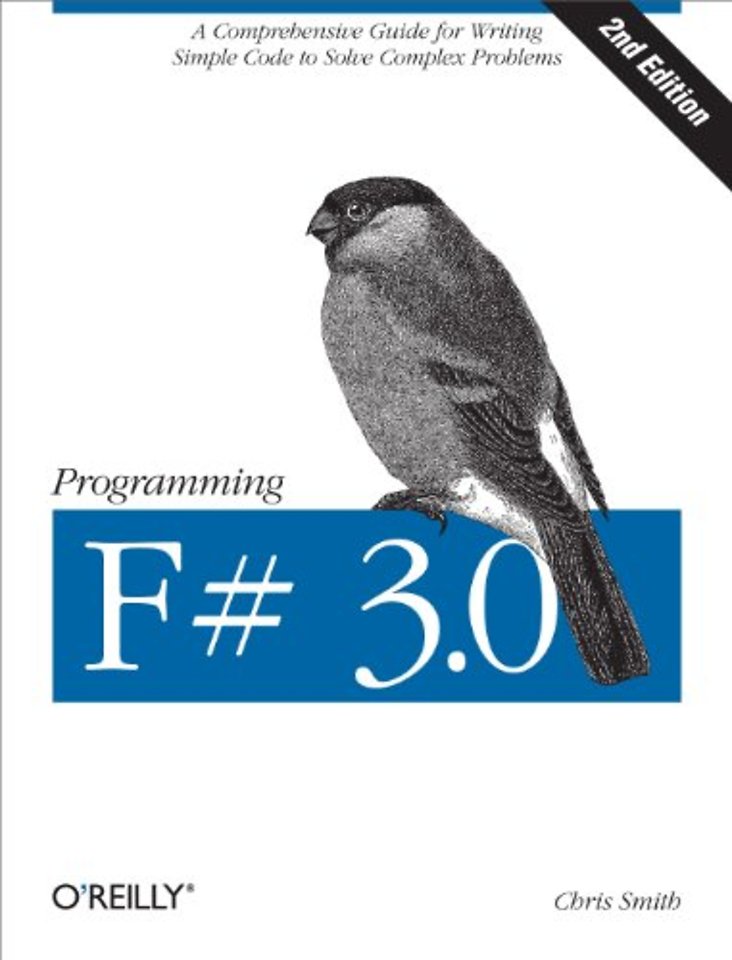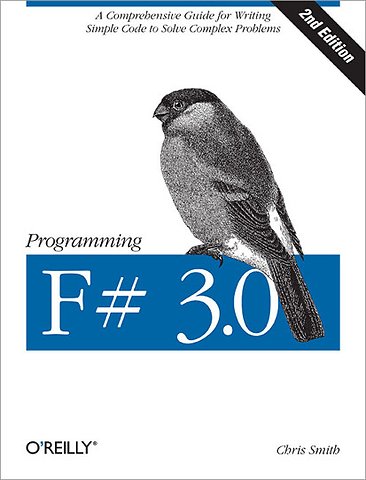


Chris Smith works at Microsoft on the F# team. His role as a software design engineer in test gives him a unique mastery of the F# language.
Meer over Chris SmithProgramming F# 3.0
A Comprehensive Guide for Writing Simple Code to Solve Complex Problems
Paperback Engels 2012 2e druk 9781449320294Samenvatting
Why learn F#? With this guide, you'll learn how this multi-paradigm language not only offers you an enormous productivity boost through functional programming, but also lets you develop applications using your existing object-oriented and imperative programming skills. You'll quickly discover the many advantages of the language, including access to all the great tools and libraries of the .NET platform.
Reap the benefits of functional programming for your next project, whether you're writing concurrent code, or building data- or math-intensive applications. With this comprehensive book, former F# team member Chris Smith gives you a head start on the fundamentals and walks you through advanced concepts of the F# language.
- Learn F#'s unique characteristics for building applications
- Gain a solid understanding of F#'s core syntax, including object-oriented and imperative styles
- Make your object-oriented code better by applying functional programming patterns
- Use advanced functional techniques, such as tail-recursion and computation expressions
- Take advantage of multi-core processors with asynchronous workflows and parallel programming
- Use new type providers for interacting with web services and information-rich environments
- Learn how well F# works as a scripting language
Specificaties
Lezersrecensies
Inhoudsopgave
Part 1: Multiparadigm Programming
1. Introduction to F#
-Getting to Know F#
-Visual Studio 11
-F# Interactive
-Managing F# Source Files
2. Fundamentals
-Primitive Types
-Comparison and Equality
-Functions
-Core Types
-Organizing F# Code
3. Functional Programming
-Understanding Functions
-Pattern Matching
-Discriminated Unions
-Records
-Lazy Evaluation
-Sequences
-Queries
4. Imperative Programming
-Understanding Memory in .NET
-Changing Values
-Units of Measure
-Arrays
-Mutable Collection Types
-Looping Constructs
-Exceptions
5. Object-Oriented Programming
-Programming with Objects
-Understanding System.Object
-Understanding Classes
-Methods and Properties
-Inheritance
6. .NET Programming
-The .NET Platform
-Interfaces
-Object Expressions
-Extension Methods
-Extending Modules
-Enumerations
-Structs
Part 2: Programming F#
7. Applied Functional Programming
-Active Patterns
-Using Modules
-Mastering Lists
-Tail Recursion
-Programming with Functions
-Functional Patterns
-Functional Data Structures
8. Applied Object-Oriented Programming
-Operators
-Generic Type Constraints
-Delegates and Events
-Events
9. Asynchronous and Parallel Programming
-Working with Threads
-Asynchronous Programming
-Asynchronous Workflows
-Parallel Programming
-Task Parallel Library
10. Scripting
-F# Script Files
-Directives
-F# Script Recipes
-Chapter 11 Data Processing
-Indexing
-Querying
Part 3: Extending the F# Language
12. Reflection
-Attributes
-Type Reflection
-Dynamic Instantiation
-Using Reflection
13. Computation Expressions
-Toward Computation Expressions
-Computation Expression Builders
-Custom Computation Expression Builders
14. Quotations
-Quotation Basics
-Generating Quotation Expressions
15. Type Providers
-Typed Data Versus Typed Languages
-Type Providers
Part 4: Appendixes
Appendix A: Overview of .NET Libraries
Appendix B: F# Interop
Index
Anderen die dit boek kochten, kochten ook
Rubrieken
- advisering
- algemeen management
- coaching en trainen
- communicatie en media
- economie
- financieel management
- inkoop en logistiek
- internet en social media
- it-management / ict
- juridisch
- leiderschap
- marketing
- mens en maatschappij
- non-profit
- ondernemen
- organisatiekunde
- personal finance
- personeelsmanagement
- persoonlijke effectiviteit
- projectmanagement
- psychologie
- reclame en verkoop
- strategisch management
- verandermanagement
- werk en loopbaan





